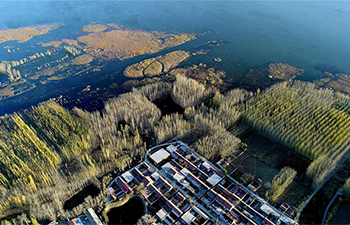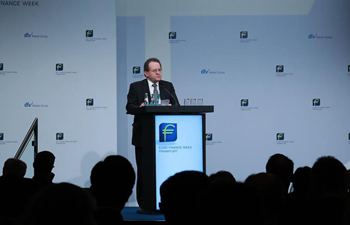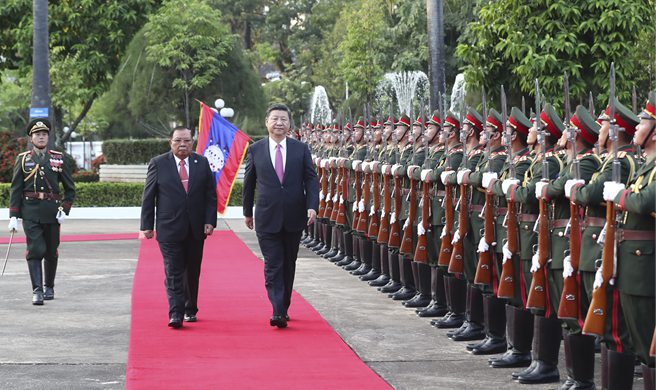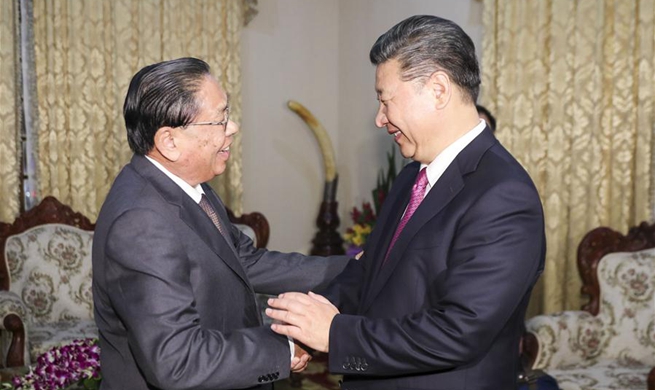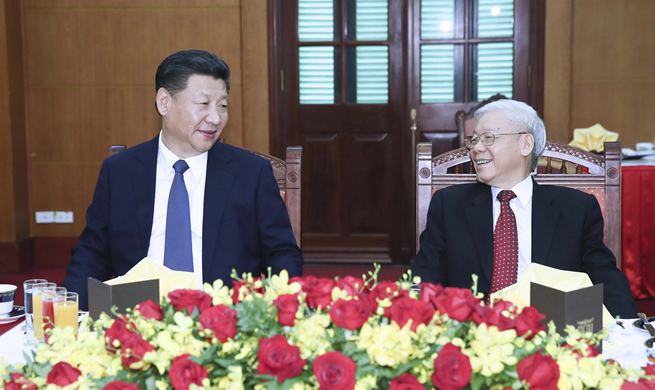BERLIN, Nov. 13 (Xinhua) -- German Foreign Minister Sigmar Gabriel (SPD) on Monday praised the signing of the defense pact on Permanent Structured Cooperation (PESCO) by 23 EU member states as a "milestone of European development."
Gabriel told press that Monday's meeting marked a "a big step towards the self-reliance and strengthening of EU security and defense policy."
Gabriel's comments were made as 23 EU member states agreed to establish a new EU defense union known as "Permanent Structured Cooperation" (PESCO).
As of December 2017, first projects under the framework of PESCO could witness the creation of a joint paramedic command, as well as the creation of shared logistics operations to unify military transportation and procurement.
Germany's decision to join PESCO entails an obligation to regularly raise national defense spending. However, Gabriel expressed the view that more military cooperation would allow EU states to save money in the long-run with greater efficiency and effectiveness.
"We have around 50 percent of the defense expenditure of the U.S., but only 50 percent of their efficiency because we fail to coordinate among ourselves," said the German foreign minister.
Growing transatlantic tensions are a key driving force behind the foundation of PESCO.
U.S. President Donald Trump has repeatedly raised questions over the historical security guarantee provided by Washington to its European allies under the umbrella of the North Atlantic Treaty Organization (NATO).
In response, European leaders have increasingly voiced a desire to forge an independent EU defense policy.
Nevertheless, German politicians flatly rejected a simultaneous plea from Antonion Tajani, president of the European Parliament, to double the EU's budget.
Speaking to the "Funke" media group, Tajani said that the EU needed "240 billion euros instead of 140 billion euros" in order to cope with the challenges of the refugee crisis, terrorism, as well as raise the level of investments.
"This topic does not feature on our daily agenda at all" Steffen Seibert, the official speaker of Chancellor Angela Merkel, said.
The Ministry of Finance also reacted with skepticism towards Tajani's proposal to raise some of the funds through new taxes, including on financial transactions. The ministry noted that negotiations over the EU's next budget were not due to commence until 2018.
Free Democratic Party (FDP) leader Christian Lindner was most vocally opposed to the initiative of the president of the European Parliament.
Writing in the newspaper "Rheinische Post", Lindner argued that the "EU was not a state, but rather a federation of states."
"We therefore want to maintain the current arrangement wherein the budget is financed by contributions from member states," the FDP leader added.




